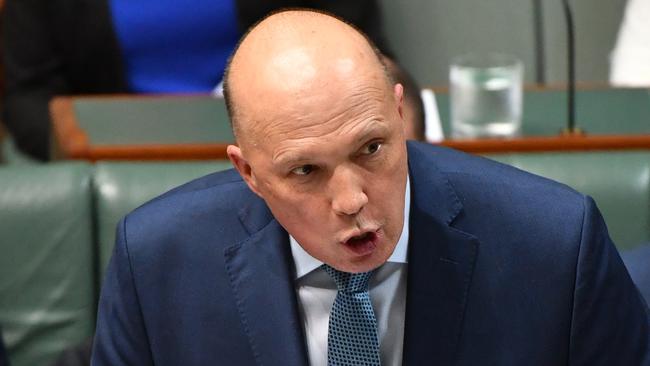Ruling a blow to medivac repeal bid
Asylum-seekers can be medically transferred to Australia without speaking to a doctor.

The Federal Court has found asylum-seekers on Nauru and Manus Island can be medically transferred to Australia without speaking to a doctor, delivering a blow to the Morrison government as it attempts to repeal the medivac laws.
The case centred on whether a medical evacuee must have had “direct personal interaction” with the doctor who recommended their transfer, such as through a phone call or teleconference.
READ MORE: PM has no choice but to call Jacqui Lambie’s bluff, writes Simon Benson | Lambie makes medivac laws ultimatum | Violence no barrier to medivac for Nauru asylum-seeker
Human rights lawyers said the decision may open transfers to asylum-seekers on Nauru who could not currently access the process.
They said the government must now consider medivac applications “of sick women and men in Nauru who are barred (because of Nauruan laws) from engaging in telehealth consultations with Australian doctors”.
“These applications are made for people who have been blocked by the Nauruan government from having a telehealth consultation with Australian doctors,” Human Rights Law Centre legal director David Burke said.
“Every day in Australian hospitals, surgeons and specialists give advice about the treatment patients need based on medical records and test results,” he said.
“The applications are entirely in line with Australian medical standards.”
Home Affairs Minister Peter Dutton’s spokesman said the fact any two doctors in Australia could recommend the transfer of an individual “without so much as even speaking to that person illustrates the serious deficiencies in the legislation”.
The setback for the government comes as it weighs whether to force a vote on repealing the medivac laws in the final parliamentary sitting week of the year.
The government failed in its attempt to repeal an earlier Federal Court judgment that found a 30-year-old Iraqi man on Nauru could be transferred to Australia under the laws, even though he did not have any personal engagement with the doctors who assessed him.
Tasmanian senator Jacqui Lambie is the final vote the government must secure to repeal the bill, but she has a mysterious “condition” that she says must be met before she offers her backing.
The Iraqi asylum-seeker in the court case, known as CCA19, was assessed by two doctors who reviewed his medical records and other material relating to medical facilities on Nauru.
Neither doctor personally interviewed or physically examined him.
Under the medivac laws, which were passed in February with Labor, Greens and crossbench support, two or more doctors must assess the person “either remotely or in person” and notify the Department of Home Affairs if the person requires medical treatment in Australia.
“In our opinion, this provision does not provide a firm enough basis to construe ‘assessed the transitory person either remotely or in person’ or ‘whether in person or remotely’ as requiring a direct personal communication with the transitory person,” the court ruled.
Mr Dutton must approve a transfer unless he believes it is unnecessary, holds concerns about the person on national security grounds or the individual has a substantial criminal record.
He is also required to advise the newly established independent health advice panel of his decision to refuse a transfer, which in turn must “conduct a further clinical assessment of the person (whether in person or remotely)” and inform the minister of its findings.
If the panel overturns his decision, Mr Dutton can refuse the transfer only on national security grounds or if he has knowledge the person has faced a term of at least 12 months of imprisonment.
The government argued in the Federal Court that the doctors acted as consultants rather than as treating doctors and the judge had wrongly found the panel was not required to conduct any personal assessment of a transferee.
The Department of Home Affairs said it was already acting in a manner consistent with the court’s decision following the earlier ruling on June 18. A spokesman for the department said “the full Federal Court found that the relevant provisions do not require some form of personal engagement with the particular transitory person”.




To join the conversation, please log in. Don't have an account? Register
Join the conversation, you are commenting as Logout